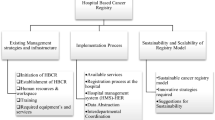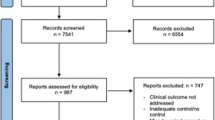Abstract
Background
Mental health has an important role in the care of cancer patients, and access to mental health services may be associated with improved outcomes. Thus, poor access to psychiatric services may contribute to suboptimal cancer treatment. We conducted a geospatial analysis to characterize psychiatrist distribution and assess the impact of mental healthcare shortages with surgical outcomes among patients with gastrointestinal cancer.
Methods
Medicare beneficiaries with mental illness diagnosed with complex gastrointestinal cancers between 2004 and 2016 were identified in the Surveillance, Epidemiology, and End Results (SEER)-Medicare registry. National Provider Identifier-registered psychiatrist locations were mapped and linked to SEER-Medicare records. Regional access to psychiatric services was assessed relative to textbook outcome, a composite assessment of postoperative complications, prolonged length of stay, 90-day readmission and mortality.
Results
Among 15,714 patients with mental illness and gastrointestinal cancer, 3937 were classified as having high access to psychiatric services while 3910 had low access. On multivariable logistic regression, areas with low access had higher risk of worse postoperative outcomes. Specifically, individuals residing in areas with low access had increased odds of prolonged length of stay (OR 1.11, 95%CI 1.01–1.22; p = 0.028) and 90-day readmission (OR 1.19, 95%CI 1.08–1.31; p < 0.001), as well as decreased odds of textbook outcome (OR 0.85, 95%CI 0.77–0.93; p < 0.001) and discharge to home (OR 0.89, 95%CI 0.80–0.99; p = 0.028).
Conclusion
Patients with mental illness and lower access to psychiatric services had worse postoperative outcomes. Policymakers and providers should prioritize incorporating mental health screening and access to psychiatric services to address disparities among patients undergoing gastrointestinal surgery.



Similar content being viewed by others
References
Siegel RL, Miller KD, Wagle NS, Jemal A. Cancer statistics. CA Cancer J Clin. 2023;73(1):17–48. https://doi.org/10.3322/caac.21763.
Pitman A, Suleman S, Hyde N, Hodgkiss A. Depression and anxiety in patients with cancer. BMJ. 2018;361:k1415. https://doi.org/10.1136/bmj.k1415.
Paredes AZ, Hyer JM, Diaz A, Tsilimigras DI, Pawlik TM. The impact of mental illness on postoperative outcomes among Medicare beneficiaries: a missed opportunity to help surgical patients? Ann Surg. 2020. https://doi.org/10.1097/SLA.0000000000004118.
Paro A, Hyer JM, Pawlik T. Association of depression with in-patient and post-discharge disposition and expenditures among Medicare beneficiaries undergoing resection for cancer. Ann Surg Oncol. 2021;28(11):6525–34. https://doi.org/10.1245/s10434-021-09838-7.
Fox JP, Philip EJ, Gross CP, Desai RA, Killelea B, Desai MM. Associations between mental health and surgical outcomes among women undergoing mastectomy for cancer. Breast J. 2013;19(3):276–84. https://doi.org/10.1111/tbj.12096.
Davis NE, Hue JJ, Kyasaram RK, et al. Prodromal depression and anxiety are associated with worse treatment compliance and survival among patients with pancreatic cancer. Psychooncology. 2022. https://doi.org/10.1002/pon.5945.
Rice DR, Dalmacy D, Hyer JM, Diaz A, Tsilimigras DI, Pawlik TM. Impact of psychiatric illness on survival among patients with hepatocellular carcinoma. J Gastrointest Surg. 2021;25(12):3242–3. https://doi.org/10.1007/s11605-021-05029-7.
Berchuck JE, Meyer CS, Zhang N, et al. Association of mental health treatment with outcomes for US veterans diagnosed with non–small cell lung cancer. JAMA Oncol. 2020;6(7):1055–62. https://doi.org/10.1001/jamaoncol.2020.1466.
Satiani A, Niedermier J, Satiani B, Svendsen DP. Projected workforce of psychiatrists in the United States: a population analysis. Psychiatr Serv. 2018;69(6):710–3. https://doi.org/10.1176/appi.ps.201700344.
Estimating the distribution of the U.S. psychiatric subspecialist workforce. Ann Arbor, MI; 2018.
Hoffmann JA, Attridge MM, Carroll MS, Simon N-JE, Beck AF, Alpern ER. Association of youth suicides and county-level mental health professional shortage areas in the US. JAMA Pediatr. 2022. https://doi.org/10.1001/jamapediatrics.2022.4419.
Ku BS, Li J, Lally C, Compton MT, Druss BG. Associations between mental health shortage areas and county-level suicide rates among adults aged 25 and older in the USA, 2010 to 2018. Gen Hosp Psychiatry. 2021;70:44–50. https://doi.org/10.1016/j.genhosppsych.2021.02.001.
Morales DA, Barksdale CL, Beckel-Mitchener AC. A call to action to address rural mental health disparities. J Clin Transl Sci. 2020;4(5):463–7. https://doi.org/10.1017/cts.2020.42.
Diaz A, Schoenbrunner A, Pawlik TM. Trends in the geospatial distribution of inpatient adult surgical services across the United States. Ann Surg. 2021. https://doi.org/10.1097/SLA.0000000000003366.
Bacolod M, Heissel J, Shen Y-C. Spatial analysis of access to psychiatrists for US military personnel and their families. JAMA Netw Open. 2023;6(1):e2249314–e2249314. https://doi.org/10.1001/jamanetworkopen.2022.49314.
Reinert M, Fritze D, Nguyen T. The state of mental health in America 2022. Alexandria, VA; 2022.
NPPES National Provider Identifier Registry. US Centers for Medicare and Medicaid Services. https://npiregistry.cms.hhs.gov/. Accessed 2 Mar 2023.
Hyer JM, Kelly EP, Paredes AZ, Tsilimigras DI, Diaz A, Pawlik TM. Mental illness is associated with increased risk of suicidal ideation among cancer surgical patients. Am J Surg. 2021;222(1):126–32. https://doi.org/10.1016/j.amjsurg.2020.10.028.
Schmoll H-J. AJCC cancer staging manual. Ann Oncol. 2003;14(2):345. https://doi.org/10.1093/annonc/mdg077.
Edge SB, Compton CC. The American Joint Committee on Cancer: the 7th edition of the AJCC cancer staging manual and the future of TNM. Ann Surg Oncol. 2010;17(6):1471–4. https://doi.org/10.1245/s10434-010-0985-4.
Merath K, Chen Q, Bagante F, et al. Textbook outcomes among Medicare patients undergoing hepatopancreatic surgery. Ann Surg. 2020. https://doi.org/10.1097/SLA.0000000000003105.
Hyer MJ, Tsilimigras DI, Diaz A, et al. High social vulnerability and “textbook outcomes” after cancer operation. J Am Coll Surg. 2021. https://doi.org/10.1016/j.jamcollsurg.2020.11.024.
Hyer JM, Beane JD, Spolverato G, et al. Trends in textbook outcomes over time: are optimal outcomes following complex gastrointestinal surgery for cancer increasing? J Gastrointest Surg. 2022;26(1):50–9. https://doi.org/10.1007/s11605-021-05129-4.
Mehta R, Tsilimigras DI, Paredes AZ, et al. Comparing textbook outcomes among patients undergoing surgery for cancer at U.S. News & World Report ranked hospitals. J Surg Oncol. 2020;121(6):927–35. https://doi.org/10.1002/jso.25833.
Lansing SS, Diaz A, Hyer M, Tsilimigras D, Pawlik TM. Rural hospitals are not associated with worse postoperative outcomes for colon cancer surgery. J Rural Heal. 2022;38(3):650–9. https://doi.org/10.1111/jrh.12596.
Dalmacy DM, Hyer JM, Diaz A, Paro A, Tsilimigras DI, Pawlik TM. Trends in discharge disposition following hepatectomy for hepatocellular carcinoma among Medicare beneficiaries. J Gastrointest Surg. 2021;25(11):2842–50. https://doi.org/10.1007/s11605-021-05000-6.
Paro A, Hyer JM, Diaz A, Tsilimigras DI, Pawlik TM. Profiles in social vulnerability: the association of social determinants of health with postoperative surgical outcomes. Surgery. 2021;170(6):1777–84. https://doi.org/10.1016/j.surg.2021.06.001.
AbuRuz ME. Pre-operative depression predicted longer hospital length of stay among patients undergoing coronary artery bypass graft surgery. Risk Manag Healthc Policy. 2019;12:75–83. https://doi.org/10.2147/RMHP.S190511.
Oh C, Gold H, Slover J. Diagnosis of depression and other patient factors impacts length of stay after total knee arthroplasty. Arthroplast Today. 2020;6(1):77–80. https://doi.org/10.1016/j.artd.2019.11.010.
Beeler PE, Cheetham M, Held U, Battegay E. Depression is independently associated with increased length of stay and readmissions in multimorbid inpatients. Eur J Intern Med. 2020;73:59–66. https://doi.org/10.1016/j.ejim.2019.11.012.
Ghoneim MM, O’Hara MW. Depression and postoperative complications: an overview. BMC Surg. 2016;16(1):5. https://doi.org/10.1186/s12893-016-0120-y.
Hue JJ, Graor H, Zarei M, et al. IDO1 is a therapeutic target for pancreatic cancer-associated depression. Mol Cancer Ther. 2022. https://doi.org/10.1158/1535-7163.MCT-22-0055.
Satin JR, Linden W, Phillips MJ. Depression as a predictor of disease progression and mortality in cancer patients. Cancer. 2009;115(22):5349–61. https://doi.org/10.1002/cncr.24561.
Thomas KC, Ellis AR, Konrad TR, Holzer CE, Morrissey JP. County-level estimates of mental health professional shortage in the United States. Psychiatr Serv. 2009;60(10):1323–8. https://doi.org/10.1176/ps.2009.60.10.1323.
Guerrero APS, Balon R, Beresin EV, et al. Rural mental health training: an emerging imperative to address health disparities. Acad Psychiatry. 2019;43(1):1–5. https://doi.org/10.1007/s40596-018-1012-5.
Carlo AD, Unützer J, Ratzliff ADH, Cerimele JM. Financing for collaborative care—a narrative review. Curr Treat Options Psychiatry. 2018;5(3):334–44. https://doi.org/10.1007/s40501-018-0150-4.
Gardner JS, Plaven BE, Yellowlees P, Shore JH. Remote Telepsychiatry workforce: a solution to psychiatry’s workforce issues. Curr Psychiatry Rep. 2020;22(2):8. https://doi.org/10.1007/s11920-020-1128-7.
Fei-Zhang DJ, Moazzam Z, Ejaz A, et al. The impact of digital inequities on gastrointestinal cancer disparities in the United States. J Surg Oncol. 2023. https://doi.org/10.1002/jso.27257.
Busch AB, Sugarman DE, Horvitz LE, Greenfield SF. Telemedicine for treating mental health and substance use disorders: reflections since the pandemic. Neuropsychopharmacology. 2021;46(6):1068–70. https://doi.org/10.1038/s41386-021-00960-4.
Wilcock AD, Rose S, Busch AB, et al. Association between broadband internet availability and telemedicine use. JAMA Intern Med. 2019;179(11):1580–2. https://doi.org/10.1001/jamainternmed.2019.2234.
Nathan H, Pawlik TM. Limitations of claims and registry data in surgical oncology research. Ann Surg Oncol. 2008;15(2):415–23. https://doi.org/10.1245/s10434-007-9658-3.
Acknowledgement
We thank Josh Sadvari, MA, MGISc, for his consultation services and detailed assistance regarding the technical expertise necessary to complete the geospatial analysis using the ArcGIS software. This work was supported in part by the OSU College of Medicine Roessler research scholarship (ESK). The collection of cancer incidence data used in this study was supported by the California Department of Public Health pursuant to California Health and Safety Code Section 103885; Centers for Disease Control and Prevention’s (CDC) National Program of Cancer Registries, under cooperative agreement 1NU58DP007156; the National Cancer Institute’s Surveillance, Epidemiology and End Results Program under contract HHSN261201800032I awarded to the University of California, San Francisco, contract HHSN261201800015I awarded to the University of Southern California, and contract HHSN261201800009I awarded to the Public Health Institute. The ideas and opinions expressed herein are those of the author(s) and do not necessarily reflect the opinions of the State of California, Department of Public Health, the National Cancer Institute, and the Centers for Disease Control and Prevention or their Contractors and Subcontractors.
Funding
None.
Author information
Authors and Affiliations
Corresponding author
Ethics declarations
Disclosures
None.
Additional information
Publisher's Note
Springer Nature remains neutral with regard to jurisdictional claims in published maps and institutional affiliations.
Rights and permissions
Springer Nature or its licensor (e.g. a society or other partner) holds exclusive rights to this article under a publishing agreement with the author(s) or other rightsholder(s); author self-archiving of the accepted manuscript version of this article is solely governed by the terms of such publishing agreement and applicable law.
About this article
Cite this article
Katayama, E.S., Woldesenbet, S., Munir, M.M. et al. Poor Access to Mental Healthcare is Associated with Worse Postoperative Outcomes Among Patients with Gastrointestinal Cancer. Ann Surg Oncol 31, 49–57 (2024). https://doi.org/10.1245/s10434-023-14374-7
Received:
Accepted:
Published:
Issue Date:
DOI: https://doi.org/10.1245/s10434-023-14374-7




